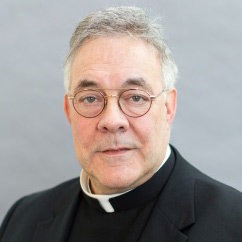ROME — For all the ‘Vaticanisti’ (journalists specializing in the Vatican) sitting around Rome and interviewing one another for the last several weeks, the wholesale consumption of high blood pressure medication took a precipitous drop on the announcement Friday afternoon that the Conclave to elect the new pope would occur on Tuesday, March 12, one day later than I had predicted several weeks ago. Now is the lull before the storm. A Mass praying for the election of the pope will be followed by the first voting session of the Conclave in the early evening.
With many media outlets waiting for that date to be announced, the remaining hotel rooms left in Rome will be gobbled up, and by Monday evening we can expect an influx of the rest of the 5000 journalists accredited to the Holy See to cover the event.
It is difficult not to compare the lead up to this Conclave to the last one I had the opportunity to witness eight years ago. Then, of course, one of the monumental figures of the twentieth century had passed from the scene after a long and highly visible bout with Parkinson’s disease. By the time I had arrived to provide commentary at the BBC location above St. Peter’s Square, the body of John Paul II was being translated (an elegant way of saying the body was ‘moved’) from the Apostolic Palace where the pope lived and died, to beneath the Bernini colonnades in the center of St. Peter’s Basilica. It was a slow, mournful and moving sight. By the time the body of the Polish pope was laid in state at the foot of the papal altar lines, long line, began forming down boulevard leading to the basilica. The crowds would grow in the following days to estimates ranging from three to four million pilgrims to pay the last respects the John Paul II.
As I arrived in Rome earlier this week, there was, of course, no pope laying in state, not papal funeral in the offing. The main events were the general congregation of cardinals becoming better acquainted with one another in anticipation of their votes, and developing priorities for the future of the church. Rome did not appear filled to the brim as I had seen it eight years ago, or evening in other periods of tourism, canonizations or sporting events.
The fact that cardinals are vowed not to discuss in any detail the deliberations meant there was very little real news to be had. I saw a reporter in the famous Gammarelli tailor shop interviewing the four generations of the Gammarelli family on what it is like to be the papal tailor, asking the same questions one can find in most guide books.
So this is the mood presently in Rome as we wait for the Conclave to begin. Even during the Conclave there will be no hard news to report as the Cardinals will be completely cut off from the world, both the Sistine Chapel where the actual voting takes place, and the Casa Santa Marta, where the cardinals will reside as of Monday evening, are all technologically jammed.
What to expect when voting actually begins on Tuesday evening: Expect black smoke Tuesday. This first vote will in effect enable the cardinal to determine, who, in fact, the front runners are. As it will take 77 votes out of 115 to elect a new pope, any candidate with more than 40 votes will attract a great deal of attention – by the cardinals that is, because those of us on the outside won’t even know about it. Stay tuned.

